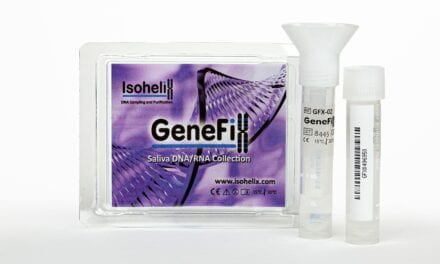Caris Life Sciences, Irving, Texas, has released results from a study that yielded insights into the prevalence of phosphatidylinositol-3-kinase (PI3K)/AKT/PTEN pathway alterations and coalterations in patients with different subtypes of breast cancer.1 The molecular profiles of nearly 5,000 patients were evaluated using the company’s Molecular Intelligence next-generation sequencing (NGS) technology, which identified pathogenic or presumed pathogenic mutations on the PI3K pathway using a 592-gene DNA sequencing panel.
Results showed a high prevalence of hotspot mutations in PIK3CA, and that 8% of breast tumors carry uncommon activating PIK3CA mutations. Additional genes activating the pathway, including AKT1, PI3R1, PIK3R2 and PTEN, were investigated and showed mutation rates ranging from 0.1% to 3%. In addition, the study revealed a significant increase in PD-L1 expression in tumor cells and a high tumor mutational burden in PIK3CA/AKT1/PTEN mutated cohorts.
“PI3K and AKT inhibitors have been shown to have significant activity against tumor progression and to overcome resistance in breast cancer, and the recent advancement of the drug class to clinical use in breast cancer is truly exciting,” says investigator Filipa Lynce, MD, an oncologist at the Georgetown Lombardi Comprehensive Cancer Center and MedStar Georgetown University Hospital. “These results demonstrate a high incidence of common and uncommon mutations that activate the PI3K pathway in these patients, which is meaningful for patient selection for the very promising drug class. The knowledge gained from this study on molecular alterations that cooccur with PI3K pathway activation could ultimately help identify novel drug combinations that have the potential to elicit synergistic growth inhibition.”
Of the 4,895 molecular profiles submitted to Caris Life Sciences, 72.7% had at least one alteration in the PIK3CA/AKT/PTEN pathway. PIK3CA was the most frequent alteration in HER2-positive breast cancer; triple-negative breast cancer was the subtype with the lowest frequency of PIK3CA mutations (18.0% versus 37% in other subtypes). Notable coalterations in the triple-negative breast cancer cohort included increased PD-L1 expression, high tumor mutational burden, and increased retrovirus-associated DNA sequence signaling.
“Our data continue to reinforce the need for further research in precision medicine in metastatic breast cancer care,” says W. Michael Korn, MD, chief medical officer at Caris Life Sciences. “As the use of precision medicine continues to evolve, our ongoing work in tumor biology and biomarkers will have broad implications in helping to guide treatment decisions for patients across a range of tumor types, including breast cancer.”
Reference
- Khoury K, Tan A, Elliot A, et al. Prevalence of phosphatidylinositol-3-kinase (PI3K) pathway alterations and coalteration of other markers in breast cancer [abstract P4-09-04, online]. Poster presented at the San Antonio Breast Cancer Symposium, San Antonio, Texas, December 10–14, 2019. Available at: www.abstractsonline.com/pp8/#!/7946/presentation/1212. Accessed February 13, 2019.
Featured image:
A 3-D rendering of the phosphatidylinositol-4-phosphate 3-kinase C2 domain-containing gamma polypeptide, a protein that belongs to the phosphoinositide 3-kinase (PI3K) family. Image © ibreakstock, courtesy Dreamstime (ID 85983526).






